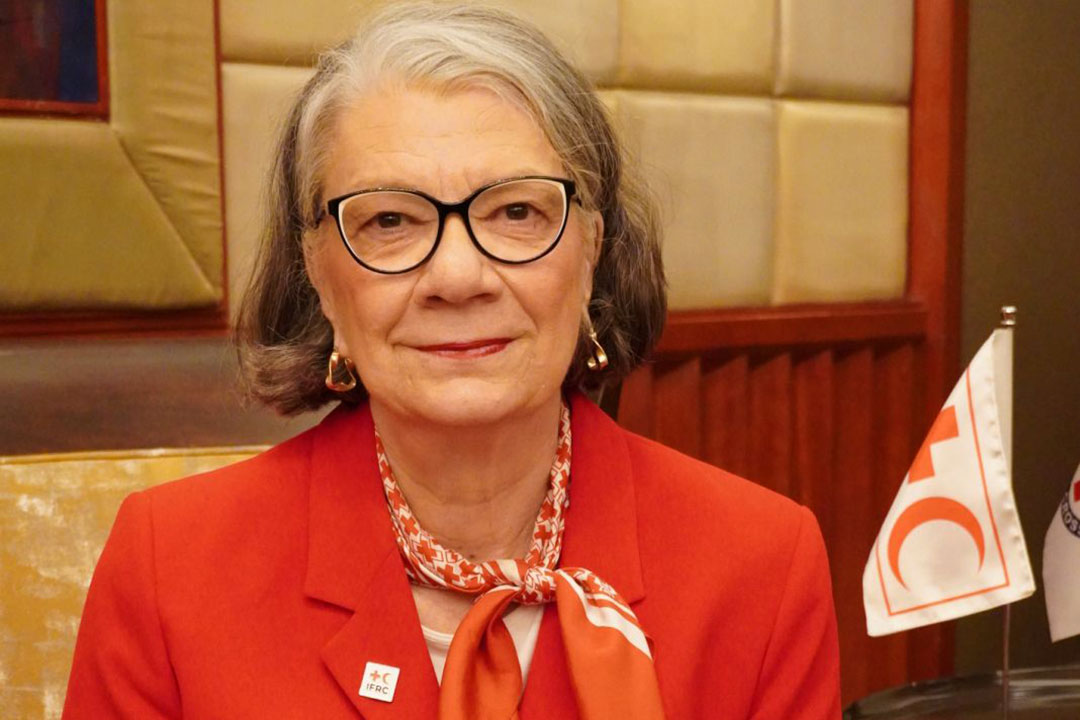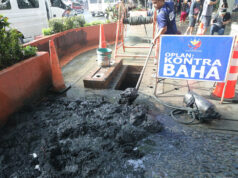‘People are never informed enough’ on safety — IFRC chief

By Chloe Mari A. Hufana
COMMUNITIES are “never informed enough” on basic health and safety, and disaster preparedness, according to International Federation of Red Cross and Red Crescent Societies (IFRC) President Kate Forbes.
“People are never informed enough. You have to constantly remind everyone, me included,” Ms. Forbes told BusinessWorld in an interview at a hotel in Makati City on Wednesday.
“I need to be reminded at home to be sure to take care of myself. Take water in the summer, to keep my first aid certification up, to be knowledgeable, to listen to the weather.”
In Manila for her first stop in Asia, she underscored the importance of taking personal responsibility to learn more about disaster preparedness.
She lauded the Philippine Red Cross (PRC) for its high engagement in the country, with over 40,000 centers. The Philippines is one of the countries with very significant Red Cross visibility in the world.
“In the near term, it appears we’re going to continue to see [more] disasters, and [the PRC is going] to be responsible for each of us to train ourselves and protect our families and to listen to us,” said Ms. Forbes.
She lauded the Philippines, saying the country’s disaster response is impressive. She credited this to the Filipinos’ ability to make adjustments and to technological advancements in disaster response.
“I visited the operations center yesterday, and the fact that the PRC is in over 40,000 villages throughout [the country] and the fact that they can get real-time data is absolutely impressive,” she said.
In particular, Ms. Forbes mentioned the PRC’s real-time earthquake monitoring and shift to reusable energy to cope with the effects of calamities.
AI INTEGRATION
The IFRC is turning to the use of artificial intelligence (AI) to predict public health issues, such as cholera, and to protect migration.
“I think the Philippines has a very good system now. But they’re also realizing that they’re going to have to incorporate more artificial intelligence and more early data,” she said, adding that the IFRC needs to collect more data globally to help disaster-prone countries like the Philippines further.
She urged the continued and intensified partnership between the Philippine government and the PRC to improve the country’s disaster response.
“There’s a real willingness and a tradition of the government being supportive of the Red Cross and Red Crescent movement, as well as the Filipino Red Cross,” she said. “The planning’s part of it, helping support early warning systems is critical; and allowing the Red Cross to have access, which the government has done, is very important.”
The IFRC is the world’s largest humanitarian network, with a presence in over 190 countries and territories.
Ms. Forbes is only the second woman to occupy the highest seat of the organization since its establishment in 1919.
This visit marks the second time an IFRC President has visited the Philippines.
‘GAZA CEASEFIRE’
Meanwhile, Ms. Forbes urged for warring Israel and Hamas, and the governments worldwide to have a ceasefire in Gaza for the IFRC to continue its humanitarian work.
“We have to have a ceasefire so that we can have access into Gaza,” she said. “We are prepared to get aid in. We are prepared with our volunteers to really help those who need it. But we have to have more access.”
Last February, she met with hostages and families of hostages in Israel.
The protection of the IFRC emblem is necessary for them to fulfill their mandate, she said, sharing the loss of IFRC volunteers in Sudan days ago.
“I call on all governments to abide by the Geneva Conventions and all governments who have any influence on any place where there is a war to bring us an environment where we can bring aid into the people,” she added.
The Geneva Conventions of 1949 and their Additional Protocols are the core of international humanitarian law, regulating the conduct of warfare to limit its effects. These international agreements protect civilians and aid workers.
Last October 2023, the militant group Hamas attacked a concert in Western Israel, killing 364 civilians.
This exacerbated the ongoing hostilities between Hamas and Israel, where the death toll reached over 36,000.



